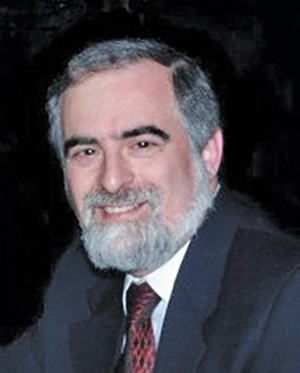
Spoiler Alert #1: Per Wikipedia, “The Onion is an American digital media company and news satire organization that publishes articles on international, national, and local news.” Here’s the headline and opening sentences from a June 27, 2017, article:
Study Finds Americans Do Most Financial Planning When Figuring Out How to Get Money’s Worth at Buffet
WASHINGTON—Shedding light on how the nation manages its wealth, a study released Thursday by the Pew Research Center revealed that Americans conduct the vast majority of their financial planning when figuring out how to get their money’s worth at an all-you-can-eat buffet. “Our data show that Americans devote the greatest amount of attention to allocating their resources when determining how much value they can wring from the offerings at their local Hometown Buffet or Golden Corral,” said lead researcher Michelle Keene…
At the close of the article, Ms. Keene observed:
“(T)he average American shows an unprecedented level of foresight and long-term thinking while heaping their plate with the most expensive meat and seafood.”
Spoiler Alert #2: While almost nothing in the above-mentioned article is factual, the Onion is telling the truth.
To clarify: Although it’s a real organization based in Washington, D.C., there is no report from the Pew Research Center. “Michelle Keene,” is not a lead researcher, but per a Google search, a bail bondsman in Murfreesboro, North Carolina. As to the assertion that Americans “conduct the vast majority of their financial planning” at an all-you-can-eat buffet, there is no research to substantiate this claim.
And yet…the story is spot-on. Americans do make better financial decisions at an all-you-can-buffet. You see, when it comes to eating…
We do it every day. Not to equate it to Malcolm Gladwell’s 10,000-hour rule (mastery of a skill requires 10,000 hours of practice), but most of us are adept at eating, simply because we’ve had so much practice.
We know what we like. It’s the rare diner who goes to an all-you-can-eat buffet because they want to “try something new.” Mac and cheese, fried chicken and soft-serve ice cream aren’t exotic dishes that require a chef’s explanation. People come to buffets to get huge portions of foods they know they like.
The feedback loop is immediate. From the first bite, you know if you’re going to have seconds on meatloaf. And an hour later, you can tell if the asparagus is giving you gas. It’s easy to assess if you made a good decision.
But personal finance? Well, none of the above factors are present.
We don’t do financial planning every day. It’s not like eating. Urgent issues of the day push financial planning into something to be addressed “tomorrow,” when there’s more time. Quarterly statements are stacked, unopened, on your desk, and you make it to annual reviews every three years. That’s not a recipe for financial competence.
We don’t know what we like. Mac and cheese? Easy to evaluate, and vote up or down. Whether the alpha of an investment is too volatile for your risk profile? Well, when you sat down with your financial professional for an annual review, it all made sense… until you left the office, and your spouse asked, “Did you understand those recommendations?”
The feedback loop is delayed. The evaluation period for some financial decisions can take years. Is it time to let go of that investment that has underperformed expectations, or is it on the edge of taking off? How do you tell?
You can’t set it and forget it.
In their 1996 bestseller, “The Millionaire Next Door,” authors Thomas Stanley and William Danko provided insights about habits and actions that define the wealthiest Americans. One of their findings: a distinct correlation between the amount of time individuals spent planning and managing their personal finances and successful outcomes. Those who invested more time—particularly those who kept to a schedule of reviews and updates—had better financial lives; i.e., they had more money, less stress, greater contentment.
Many Americans underachieve in their financial planning because they don’t do it often enough to become good at it. Do you need to increase your time commitment to your financial plans?
2018-62410 Exp 7/2020
This article was prepared by an independent third party. Material discussed is meant for general informational purposes only and is not to be construed as tax, legal or investment advice. Although the information has been gathered from sources believed to be reliable, please note that individual situations can vary. Therefore, the information should be relied upon only when coordinated with individual professional advice.
Registered Representative and Financial Advisor of Park Avenue Securities LLC (PAS), 355 Lexington Avenue, 9 Fl., New York, NY 10017, 212-541-8800. Securities products/services and advisory services offered through PAS, a registered broker/dealer and investment adviser. Financial Representative, The Guardian Life Insurance Company of America (Guardian), New York, NY. PAS is an indirect, wholly owned subsidiary of Guardian. Wealth Advisory Group LLC is not an affiliate or subsidiary of PAS or Guardian.
PAS is a member FINRA, SIPC.
Neither Guardian, PAS, Wealth Advisory Group, their affiliates/subsidiaries, nor their representatives render tax or legal advice. Please consult your own independent CPA/accountant/tax adviser and/or your attorney for advice concerning your particular circumstances.
2018-64966 Exp. 7/2020
Submitted by Elozor Preil










